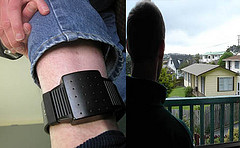What happens in juvenile court?

Some people call it “juvy,” “children′s court,” “juvenile court,” or “juvenile hall.” The names change from state to state, but the court′s job and authority over you are the same. Your age determines whether you′ll appear in juvenile or adult court. In most states, juvenile court jurisdiction ends at age eighteen. In a few states, you may remain under the authority of the juvenile court until you′re twenty-one.
During 2002:
- 385,400 juveniles were placed on probation.
- 392,800 spent time in detention.
- 144,000 delinquents were placed out of home—in training schools, camps, residential treatment facilities, or group homes.
Source: Juvenile Offenders and Victims: A National Report, National Center for Juvenile Justice (2006)
Juvenile courts deal with children and teenagers in cases involving child abuse and neglect, abandonment by parents, termination of parents′ rights, and adoption. All delinquency (juvenile criminal cases) and incorrigibility (out of parents’ control) cases are handled in juvenile court. Miscellaneous hearings covering name changes, mental health issues, and abortion may be conducted in the juvenile court.
Once you′re involved with the juvenile court system, you have some of the same rights as an adult. You may be appointed an attorney to represent you or a guardian to speak about what′s in your best interests.
In a delinquency case (where you′re charged with breaking the law), you may remain silent, plead guilty or not guilty, and go to trial if you choose. In some states, you may be entitled to a jury trial. You may also have the right to appeal a decision that you disagree with.

Photo by Cliff 1066 (Flickr)
The trials or hearings in juvenile court aren′t as formal as those in adult court or the cases you see on TV. The philosophy of juvenile justice is treatment and rehabilitation, not punishment, although the pendulum is beginning to swing toward greater consequences.
If you′re not locked up for a period of time in juvenile detention or sent to the department of corrections, you may be placed on probation, which could last until you turn eighteen or twenty-one. Probation may include a period of time on house arrest where you’ll wear an ankle-monitor to track your activities. You may be released early if you follow all the terms of your probation and you don′t break any more laws.
Your probation officer meets with you on a regular basis and stays in touch with your parents and teachers. If you violate your probation, you′ll find yourself back in court facing more serious consequences.

Photo by Publik 15 (Flickr)
A fairly new aspect of rehabilitation is juvenile boot camp, or what some states call “shock incarceration.” It′s designed for older juvenile offenders (fifteen to seventeen years) and is used as a last resort. Boot camp often takes several months and is highly structured; juveniles are subject to firm discipline and strenuous exercise. Upon completion, there′s a second phase of rehabilitation, with less supervision and greater freedom. The goal is to eventually release the offenders from all court and probation supervision, with little risk to the community.
In the noncriminal cases in juvenile court (abuse, neglect, and adoption), you may be involved as a witness. These are considered civil cases, meaning that you won′t receive any time in detention or with the department of corrections.You may be placed by the court in a foster home or residential treatment center until the problems that brought you to the court′s attention are worked out.
If you have to appear in court and this is your first time, check out these tips for how to dress for court.


